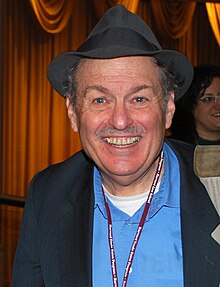Richard B. Freeman
| Richard B. Freeman | |
|---|---|
 |
|
| Born |
June 29, 1943 Newburgh, New York |
| Nationality | USA |
| Alma mater |
Dartmouth College (B.A., 1964) Harvard University (Ph.D., Economics, 1969) |
| Occupation | professor, economist |
| Website |
users scholar |
Richard Barry Freeman (born June 29, 1943) is an economist. The Herbert Ascherman Professor of Economics at Harvard University and Co-Director of the Labor and Worklife Program at Harvard Law School, Freeman is also Senior Research Fellow on Labour Markets at the Centre for Economic Performance, part of the London School of Economics, funded by the Economic and Social Research Council, the UK's public body funding social science. Freeman directs the Science and Engineering Workforce Project (SEWP) at the National Bureau of Economic Research (NBER), a network focused on the economics of science, technical, engineering, and IT labor which has received major long-term support from the Sloan Foundation.
He received his B.A. from Dartmouth in 1964 and his Ph.D. in Economics from Harvard University in 1969 for a thesis titled The Labor Market for College Manpower. He studied under Harvard Professor and Dean John T. Dunlop, who became U.S. Secretary of Labor under President Gerald Ford.
Freeman has written 18 books, edited 29 books and published over 350 published articles on a wide range of subjects including global labor standards, the scientific workforce, the economics of crime, how the internet is transforming labor movements, and historical spurts in the growth of labor unions. Freeman has made several significant but controversial contributions to economics and the field of industrial relations. In What Do Unions Do? (1984), he and his co-author James Medoff marshaled evidence that countered the conventional wisdom in mainstream economics when they concluded that “unionism on net probably raises social efficiency” and that “recent trends have brought the level of union density below the optimal level.” Freeman’s work on the economic theory of unions has found support in several subsequent studies indicating that in many fields unionized workers have delivered higher levels of productivity than their non-union counterparts. Nevertheless, some comparative scholarship indicates that the union advantage in productivity may vary by nation. Christos Doucouliagos and Patrice Laroche in an article entitled “What do unions do to productivity?” (2003) indicate that unions significantly lift productivity in U.S. manufacturing, but these authors countered with evidence that unions have had detrimental effects on productivity in the United Kingdom.
...
Wikipedia
